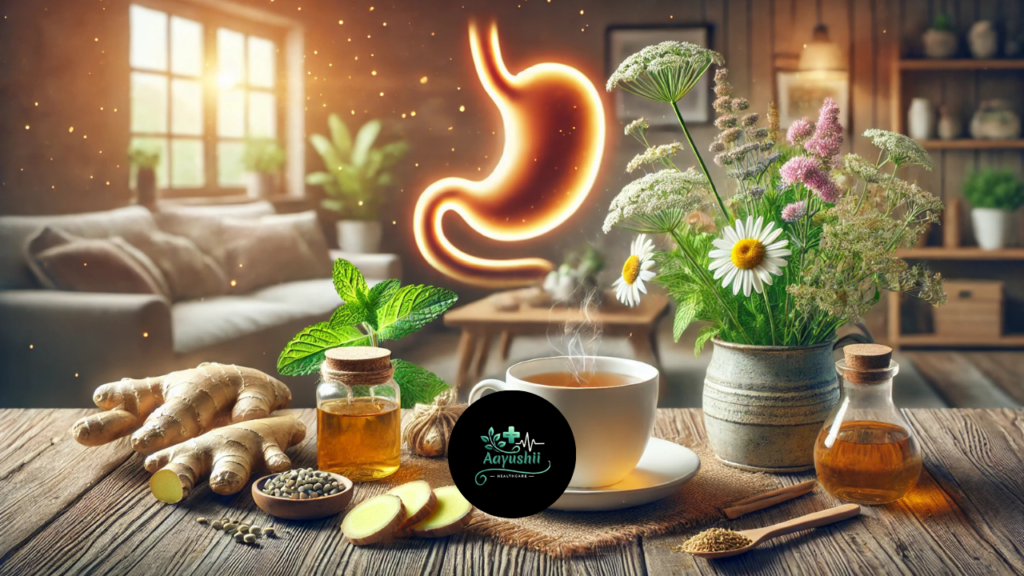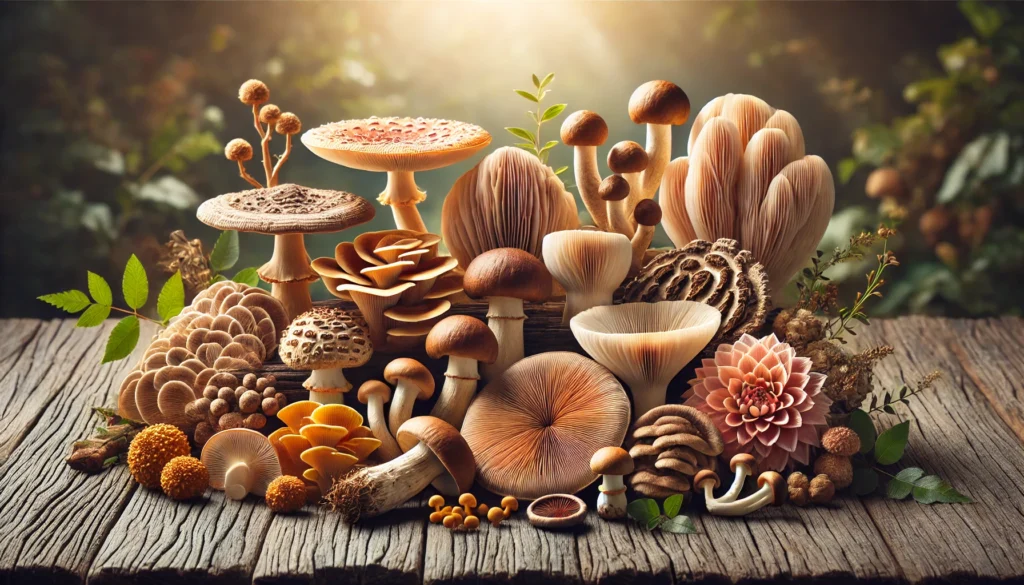Bloating and excessive gas are discomforts almost everyone experiences at some point. Whether it’s the result of a big meal, a digestive sensitivity, or simply stress, that familiar feeling of tightness in the abdomen and embarrassing gas can leave you seeking quick and effective solutions. While occasional bloating is usually not a cause for serious concern, it can drastically affect your daily comfort, confidence, and overall wellbeing.
In this in-depth article, we will explore everything you need to know about bloating and gas from their common causes to how you can use herbal teas and specific dietary tweaks for fast relief. You’ll also find valuable tips on prevention, lifestyle adjustments, and the importance of understanding your personal triggers. By the end, you’ll be equipped with practical knowledge to help manage bloating and gas confidently.
Understanding Bloating and Gas

Bloating generally refers to a feeling of fullness or tightness in the abdomen, often accompanied by visible swelling or distention of the belly. This uncomfortable sensation can be mild, causing slight pressure, or severe enough to be mistaken for other conditions like abdominal cramping or even heart conditions in extreme cases.
Gas, on the other hand, is a natural byproduct of the digestive process. As food travels through your digestive tract, bacteria break it down, producing gas (like carbon dioxide, hydrogen, and methane) along the way. Small amounts of gas are entirely normal and typically pass unnoticed. However, when gas production increases or its expulsion is delayed, you can experience:
- Excessive belching (burping)
- Flatulence (passing wind)
- Abdominal discomfort and pain
- Distention (swelling)
Why Are They Often Connected?
Bloating and gas frequently go hand in hand. Excess gas in the stomach or intestines stretches the walls of your digestive tract, contributing significantly to the bloated feeling. Moreover, certain foods or digestive inefficiencies can lead to more than the normal amount of gas being produced.
Understanding the root causes, lifestyle factors, and dietary triggers is essential because it allows you to tackle the issue effectively. Herbal teas and dietary tweaks often work hand-in-hand to deliver both quick relief and lasting changes in digestive health.
Common Causes of Bloating and Gas
- Eating Too Quickly
When you gulp down meals in a hurry, you swallow more air than usual, which gets trapped in the gastrointestinal (GI) tract. This can result in belching or bloating. - Overeating
Large meals demand more from your digestive system, causing slow gastric emptying and the production of excess gas as bacteria in your intestines break down the extra food. - High-Fat Diets
Fat takes longer to digest, so fatty meals often delay stomach emptying, making you feel bloated. Foods like fried items, processed cheese, and rich desserts can exacerbate this. - Gas-Producing Foods
Certain foods are notorious for causing bloating and gas, including legumes (beans, lentils), cruciferous vegetables (broccoli, cauliflower, cabbage, Brussels sprouts), and certain grains. - Carbonated Beverages
Sodas and sparkling water contain bubbles of carbon dioxide, which can accumulate in your stomach and cause belching or bloating. - Sugar Alcohols and Artificial Sweeteners
Sugar substitutes found in “sugar-free” products can be poorly digested, leading to fermentation in the gut and increased gas. - Food Intolerances and Sensitivities
Lactose intolerance, gluten sensitivity, and other dietary intolerances often present with significant bloating and gas. - Constipation
When stool builds up in the large intestine, it can slow down the passage of gas, often leading to bloating and abdominal discomfort. - Irritable Bowel Syndrome (IBS)
IBS is a functional gastrointestinal disorder that commonly presents with chronic bloating, gas, and changes in bowel movements. - Stress
Stress triggers hormonal changes that can alter gut motility and the balance of bacteria in your digestive tract, contributing to bloating and discomfort. - Hormonal Changes (in Women)
Fluctuations in hormone levels during menstrual cycles can result in fluid retention, slower gut motility, and increased bloating.
Knowing these potential causes helps you discern which solutions might be most effective and what preventive steps you should consider. Sometimes, minor adjustments to your daily diet or routine can yield considerable relief.
Key Dietary Tweaks to Alleviate Bloating
Often, the first line of defense against bloating and gas is to modify what and how you eat. Small, consistent dietary adjustments can make a massive impact on your digestive health.
1. Portion Control and Mindful Eating
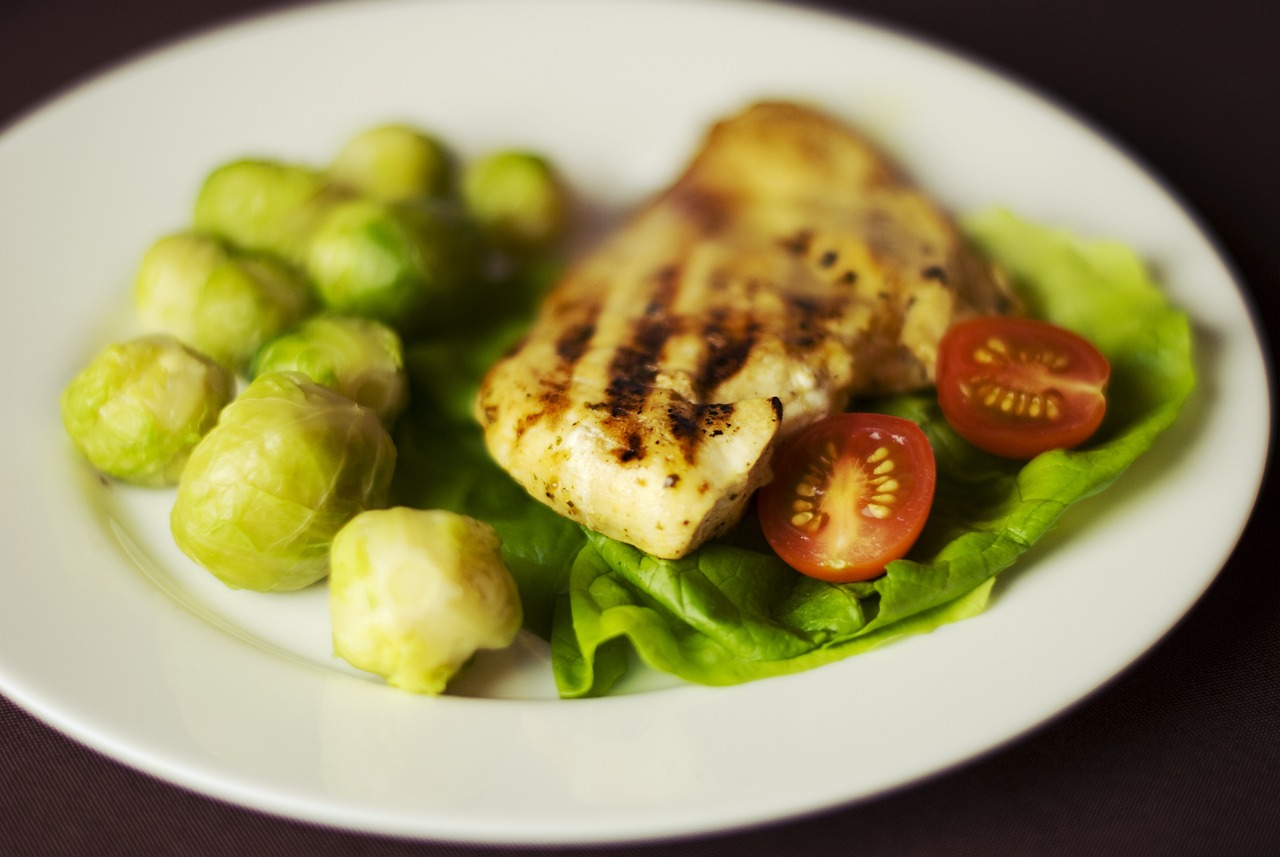
Why It Helps:
- Smaller portions reduce the workload on your stomach, improving digestion efficiency.
- Mindful eating practices—like chewing thoroughly, slowing down, and savoring each bite—help minimize the amount of swallowed air and promote better breakdown of food.
Practical Tips for Portion Control and Mindful Eating:
- Use smaller plates: This makes it easier to visually perceive that you’re eating a full meal while controlling portion sizes.
- Chew slowly and thoroughly: Aim for 20-30 chews per bite. The mechanical breakdown of food starts in your mouth, which can reduce the digestive strain on your stomach and intestines.
- Put down your utensils between bites: This helps you slow down and truly taste your food.
- Avoid distractions: Turn off the TV and put away your phone while eating. Focus on the taste, texture, and aroma of the meal.
2. Hydration and the Right Fluids

Why It Helps:
- Adequate water intake helps maintain regular bowel movements, preventing constipation-induced bloating.
- Drinking plain water instead of sugary or carbonated beverages can significantly reduce bloating.
Hydration Tips:
- Start your day with water: Having a glass of warm water first thing in the morning can gently stimulate your digestive system.
- Infuse water with herbs or fruit: If plain water bores you, try infusions with cucumber, mint, or lemon for added flavor and mild digestive benefits.
- Moderate during meals: Too much water during meals might dilute digestive enzymes; a small amount is fine, but avoid drinking large quantities right before or right after your meal.
3. Balanced Fiber Intake
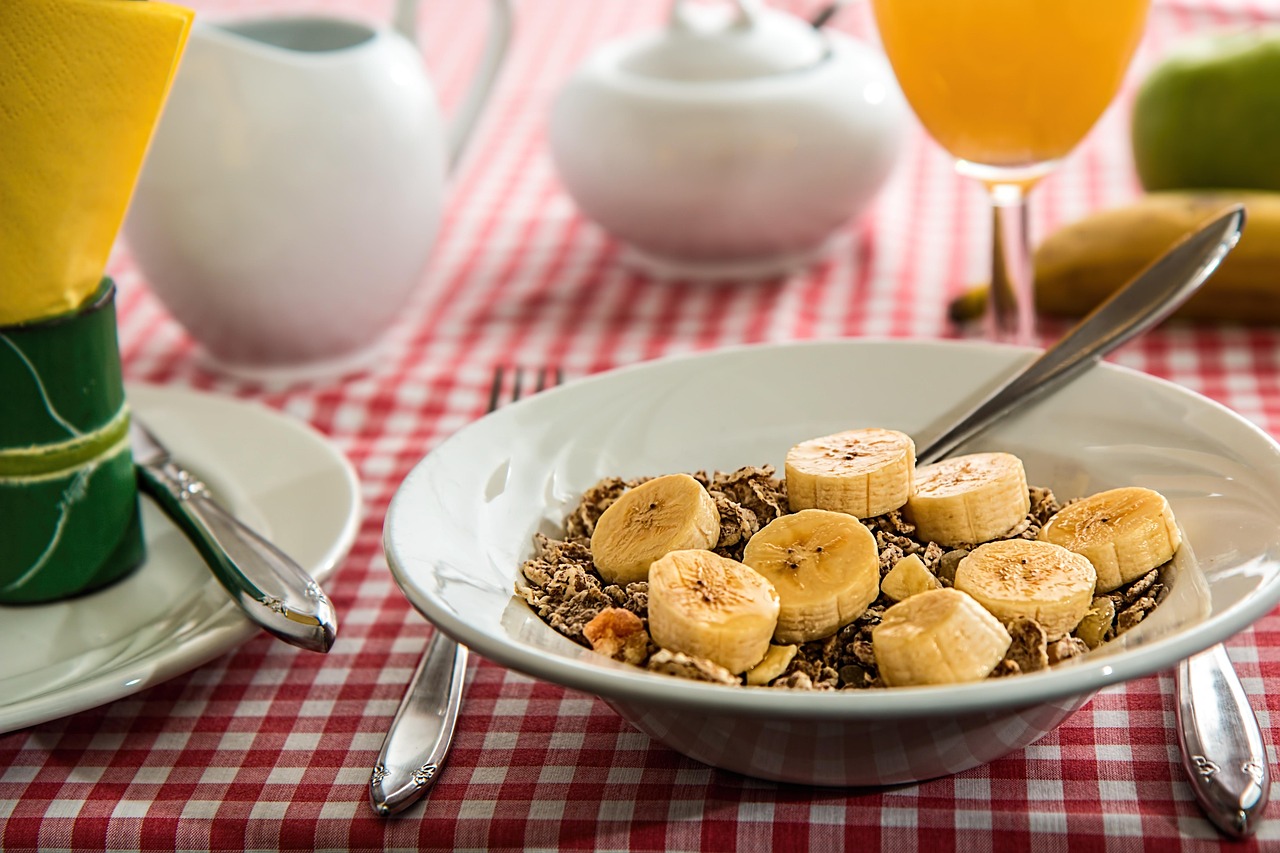
Why It Helps:
- Soluble fiber (found in oats, fruits, beans) can help regulate bowel movements and reduce bloating by forming a gel that aids digestion.
- Insoluble fiber (found in whole grains, wheat bran) promotes digestive motility, preventing constipation.
Balancing Fiber:
- Increase fiber gradually: A sudden increase in fiber can actually worsen bloating since bacteria quickly ferment the extra fiber, producing more gas.
- Stay hydrated: Fiber works best when you’re well-hydrated, as water helps stool formation and transit.
- Variety matters: Combine different plant-based foods—vegetables, fruits, legumes, and grains—to ensure you’re getting a mix of soluble and insoluble fiber.
4. Elimination or Reduction of Gas-Producing Foods
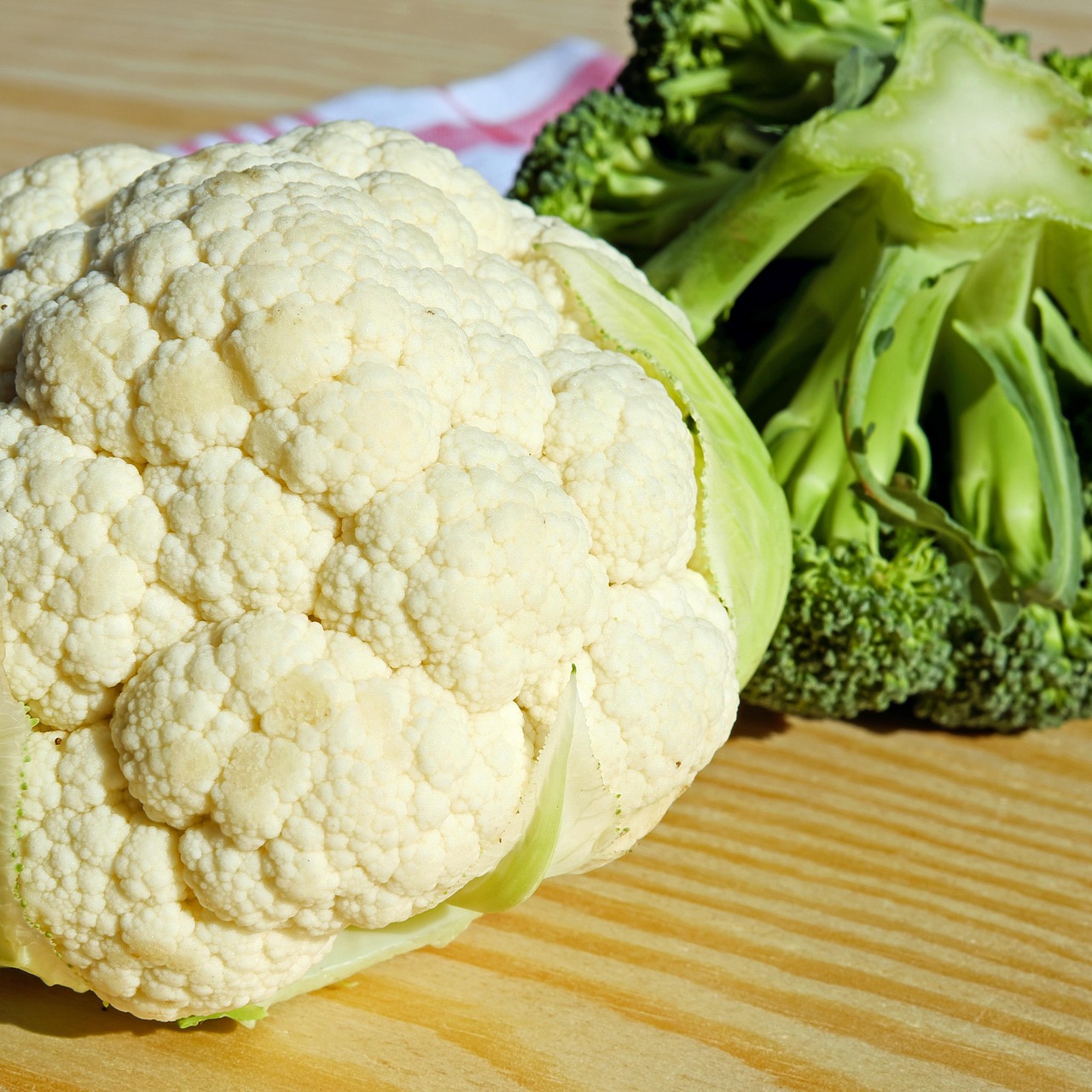
Common Culprits:
- Beans and Lentils: While nutritious, they contain oligosaccharides that can be tough to break down.
- Cruciferous Vegetables: Broccoli, cauliflower, cabbage, and Brussels sprouts can trigger gas due to their sulfur and fiber content.
- Onions and Garlic: High levels of fructans can cause gas in some individuals.
- Dairy Products (for the lactose intolerant): If you’re lactose intolerant, consuming milk, ice cream, or soft cheeses often leads to bloating and gas.
Strategies to Reduce the Impact:
- Soaking legumes: Soaking beans and lentils overnight can make them easier to digest.
- Cooking thoroughly: Proper cooking of cruciferous vegetables can help reduce their gas-producing effect.
- Trying lactose-free products: Lactose-free milk or using lactase enzyme supplements can help if you’re lactose intolerant.
5. Probiotics and Fermented Foods
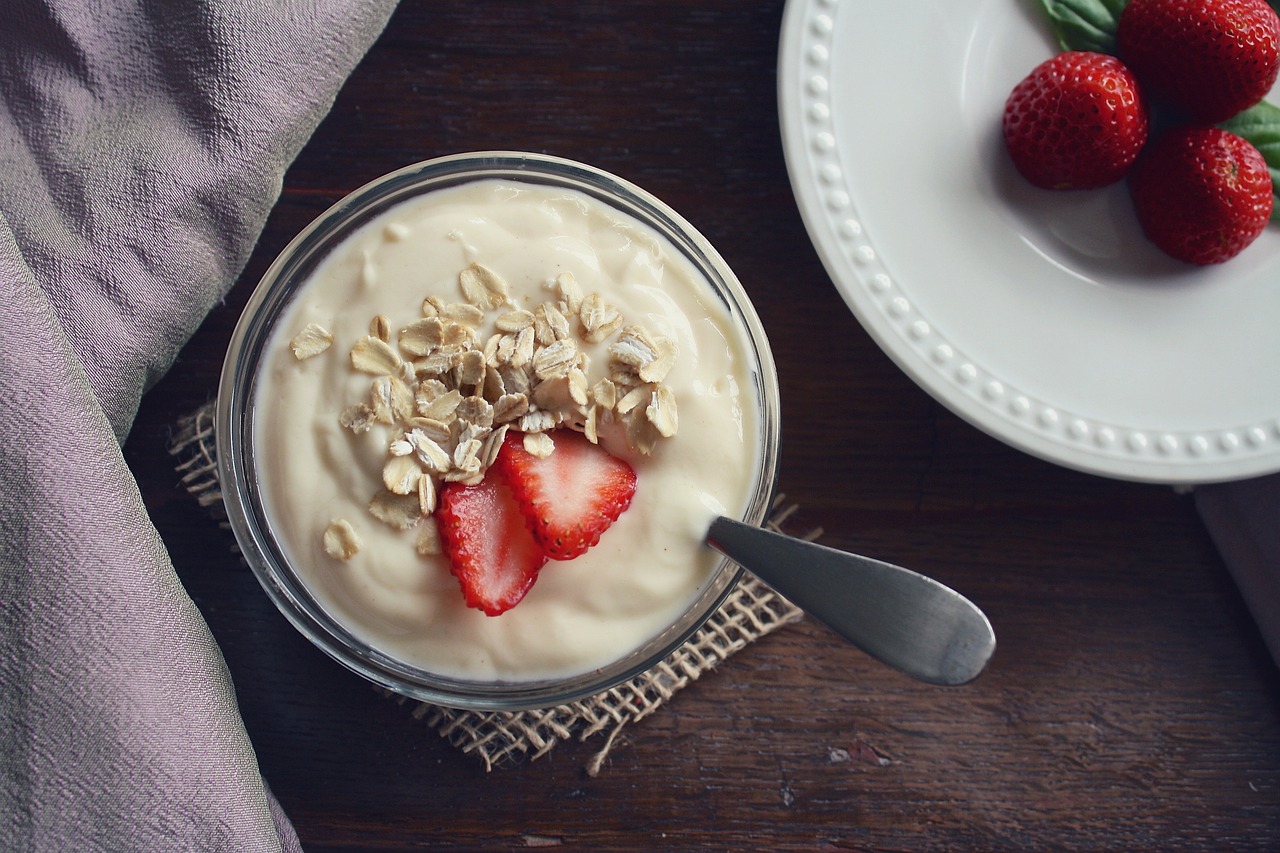
Why It Helps:
- Probiotics are beneficial bacteria that help maintain a healthy gut flora balance.
- Common sources include yogurt (with active cultures), kefir, kimchi, sauerkraut, and kombucha.
- A balanced gut microbiome can reduce excessive gas production, improve bowel regularity, and decrease bloating.
How to Incorporate Probiotics:
- Choose unsweetened yogurt: Sugar can feed gas-producing bacteria, so look for “plain” and “active cultures” on the label.
- Start slow: Fermented foods can sometimes cause temporary bloating if your gut is not used to them. Increase intake gradually.
- Supplement forms: Over-the-counter probiotic supplements are an alternative, but consult a healthcare provider to choose strains that target bloating (e.g., Bifidobacterium infantis, Lactobacillus acidophilus).
6. Low-FODMAP Diet Approach
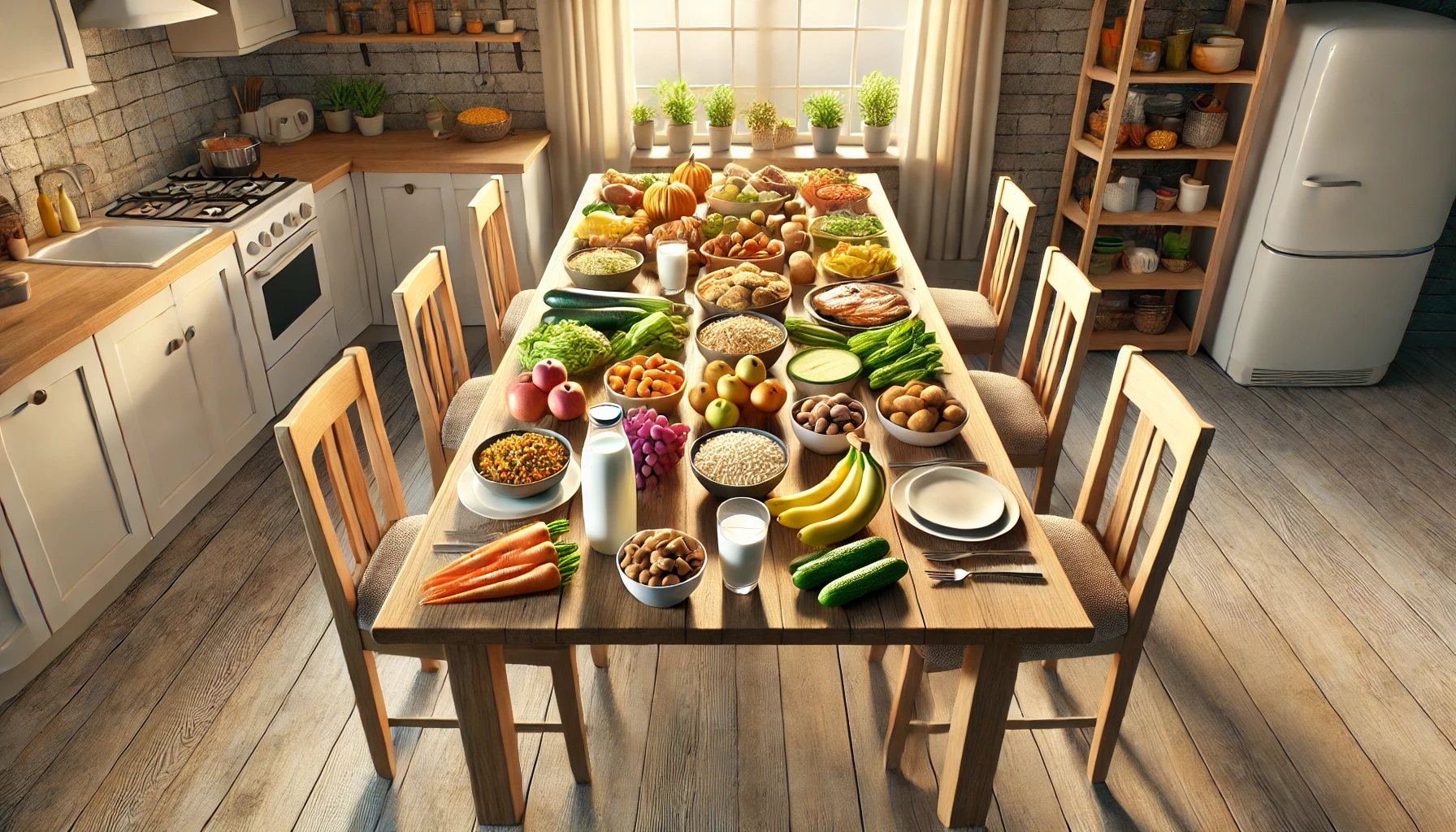
What Are FODMAPs?
- FODMAP stands for Fermentable Oligo-, Di-, Mono-saccharides and Polyols. These are short-chain carbohydrates that can be poorly absorbed in the small intestine, leading to fermentation by gut bacteria and subsequent gas production.
Who Benefits?
- People with IBS (Irritable Bowel Syndrome) often see significant relief from bloating, gas, and bowel irregularities by reducing high-FODMAP foods.
Examples of High-FODMAP Foods to Limit:
- Fruits: Apples, pears, peaches, watermelon
- Sweeteners: High-fructose corn syrup, honey
- Vegetables: Garlic, onions, asparagus, artichokes
- Legumes: Beans, lentils
- Dairy Products: Milk, ice cream (due to lactose)
Low-FODMAP Swaps:
- Vegetables: Zucchini, carrots, lettuce, spinach
- Fruits: Berries, grapes, oranges, bananas (ripe)
- Dairy Alternatives: Lactose-free milk, almond milk
- Sweeteners: Maple syrup, table sugar (in moderation)
7. Cut Back on Carbonated Drinks and Sugar Alcohols

Carbonated Drinks:
- Fizzy beverages trap gas in your stomach. Replacing these with herbal teas or still water can significantly reduce bloating.
Sugar Alcohols:
- Ingredients like xylitol, sorbitol, and erythritol are often used in sugar-free gum and sweets. Some individuals cannot digest these well, leading to gas and loose stools.
8. Avoid Swallowing Excess Air
Practical Tips:
- Limit chewing gum: Chewing gum for prolonged periods leads to more swallowed air.
- Avoid drinking through straws: This can also increase the amount of air you swallow.
- Eat slowly and keep your mouth closed while chewing: Reduces the chance of air entering your digestive tract.
Herbal Teas for Quick Relief
Herbal teas have been used for centuries to aid digestion, reduce inflammation, and alleviate discomfort associated with bloating and gas. These teas often contain volatile oils, antioxidants, and compounds that calm the digestive tract and help expel trapped gas. Below are some of the most effective herbal teas for bloating relief.
1. Peppermint Tea
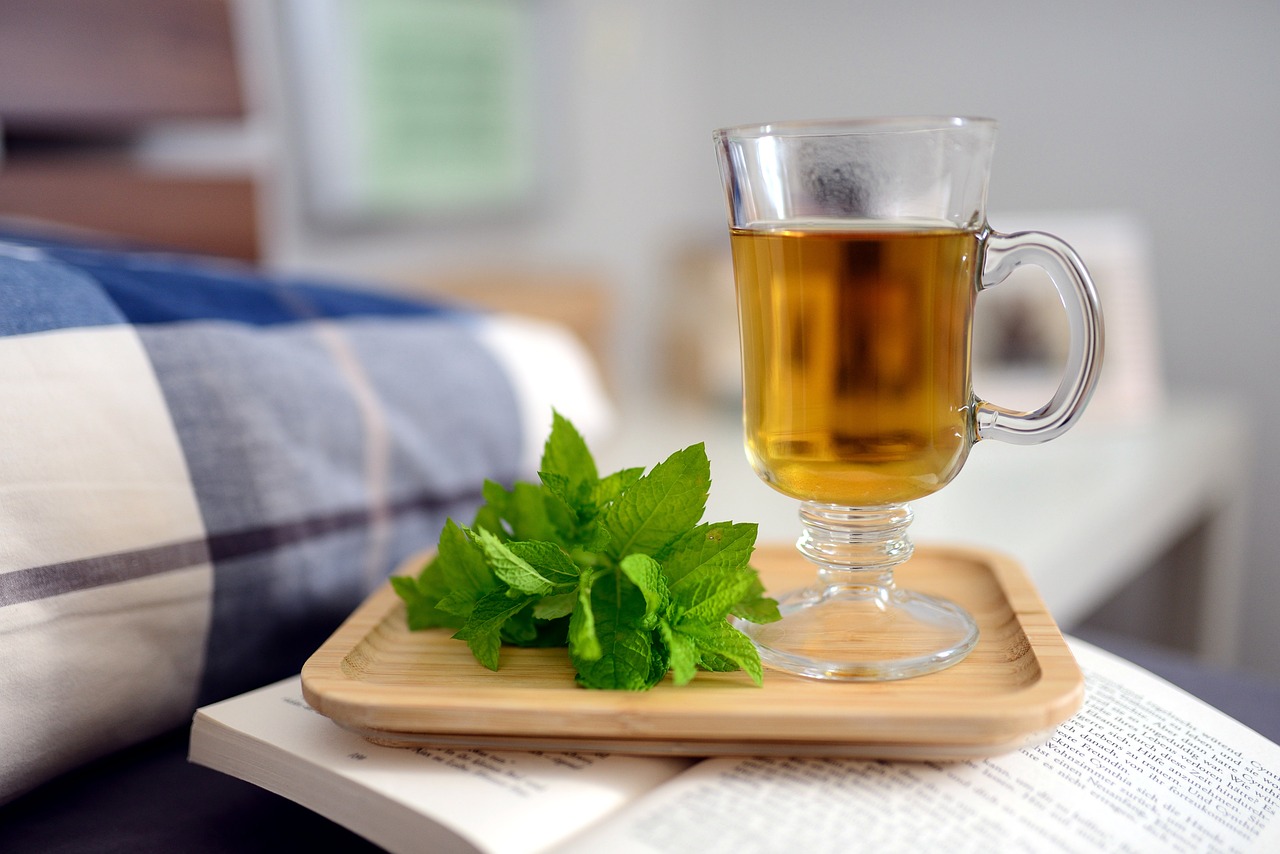
Why It Works:
- Peppermint contains menthol, an active compound that has antispasmodic properties. This means it can relax the muscles of your gastrointestinal tract, helping trapped gas to move along.
- It’s also known to reduce the sensation of cramping.
Potential Side Effects/Warnings:
- People with gastroesophageal reflux disease (GERD) should be cautious, as peppermint can relax the lower esophageal sphincter and potentially worsen acid reflux.
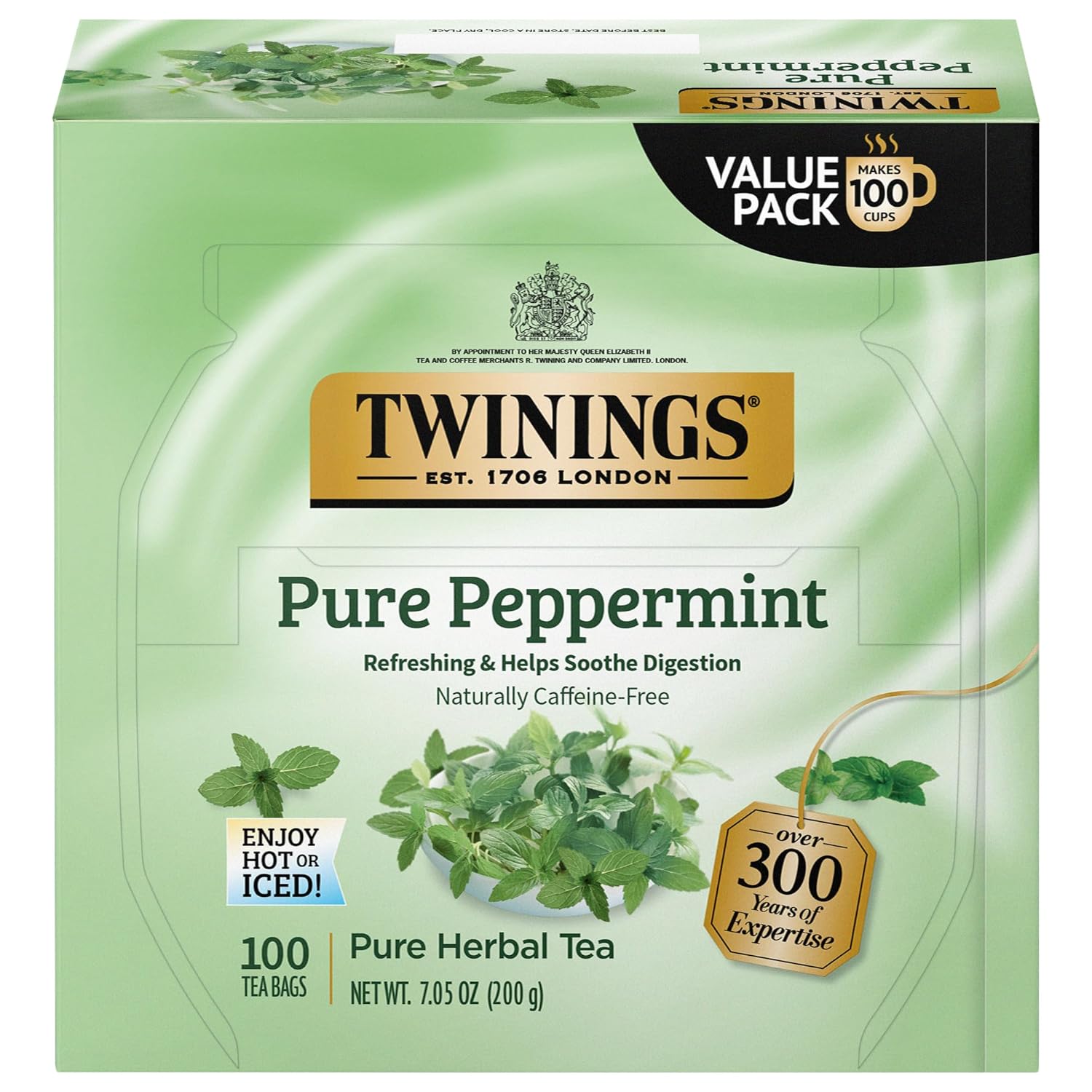
2. Chamomile Tea

Why It Works:
- Chamomile’s anti-inflammatory and carminative properties make it excellent for soothing gastrointestinal irritation.
- It relaxes the muscles of the intestines, aiding in the release of trapped gas.
Bonus Benefits:
- Chamomile is known for its calming effects on the mind, supporting stress reduction, which also plays a role in digestive comfort.
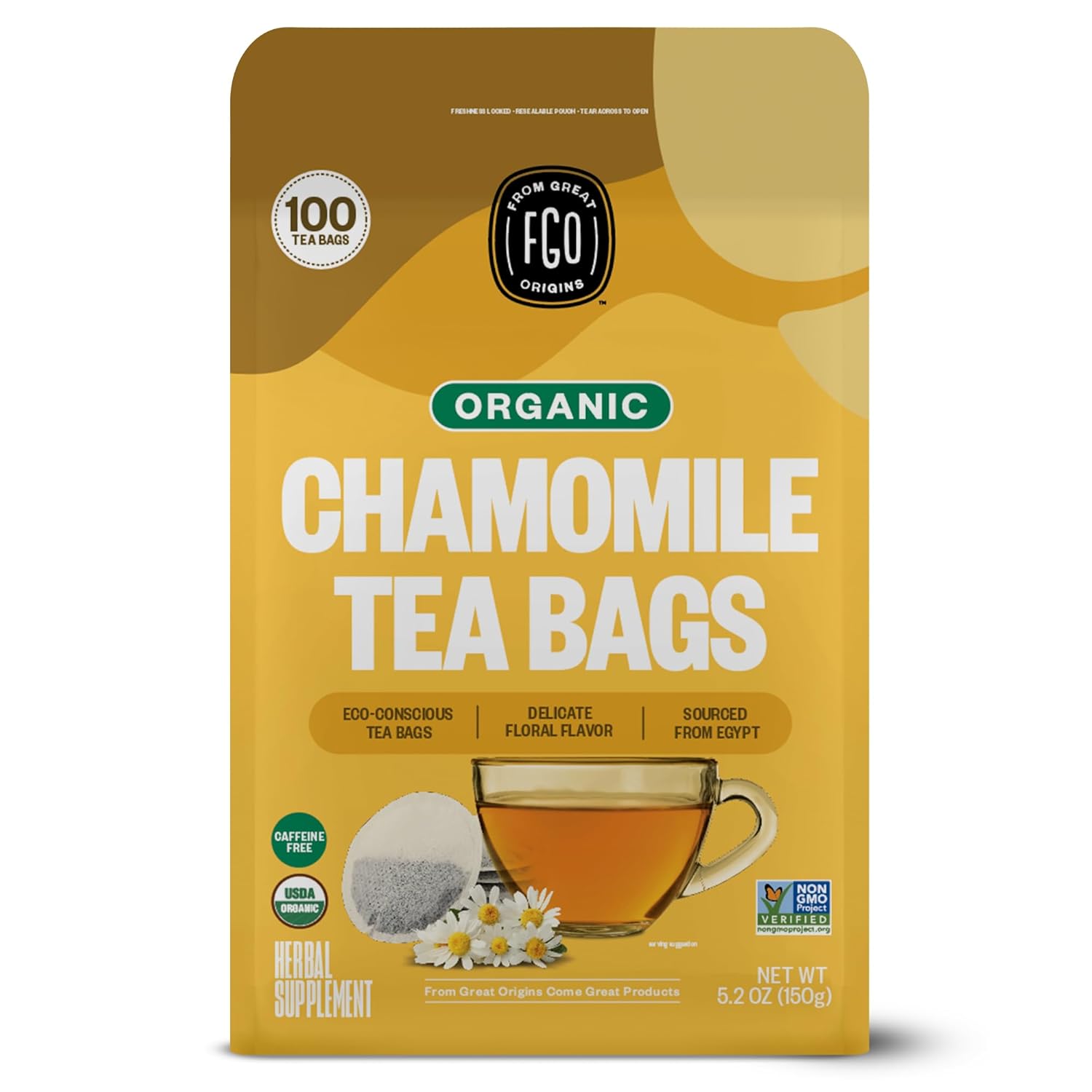
3. Ginger Tea
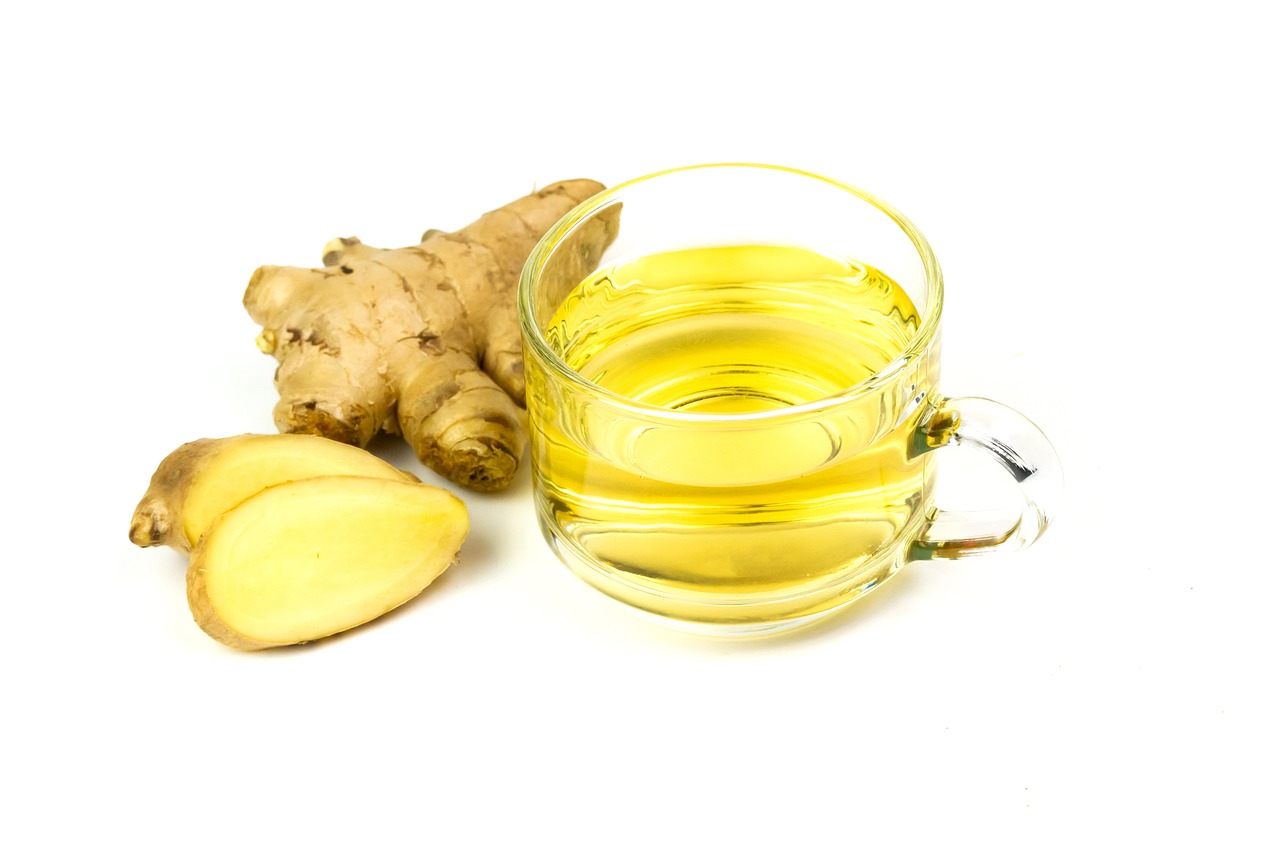
Why It Works:
- Ginger contains gingerols and shogaols, compounds that enhance gastric emptying and have anti-inflammatory properties.
- Ginger tea can reduce nausea, gas, and bloating by stimulating the production of digestive enzymes.
Preparation Tip:
- A slice of fresh ginger root steeped in hot water for 10-15 minutes can yield potent relief. Optionally, add a touch of honey or lemon.
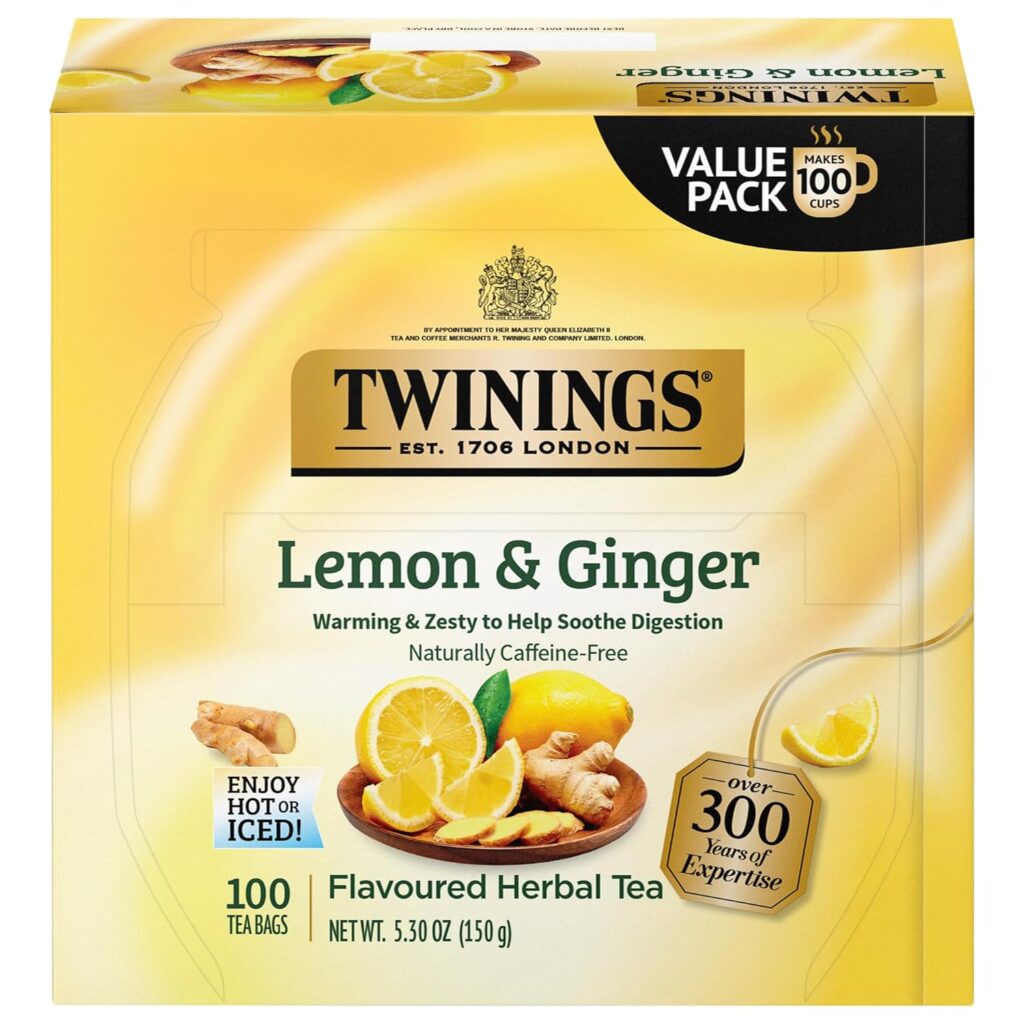
4. Fennel Tea
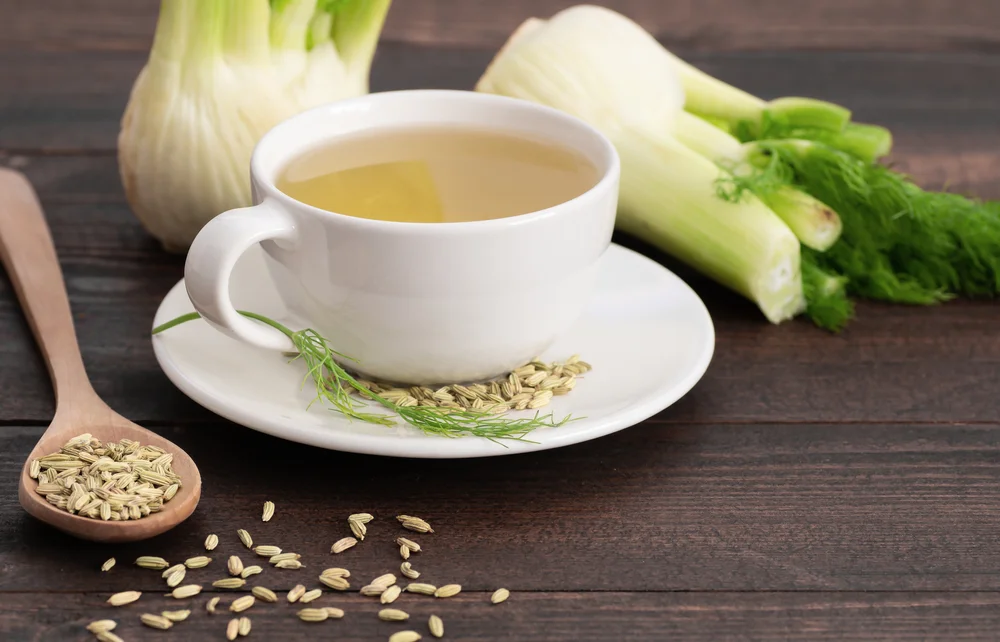
Why It Works:
- Fennel seeds contain anethole, a compound known for its carminative properties, which help relax the intestinal muscles and reduce gas.
- It can also help stimulate bile flow, which aids in the digestion of fats—often a hidden factor in bloating.
Additional Uses:
- Fennel seeds are often chewed after meals in certain cultures to aid digestion and freshen breath.
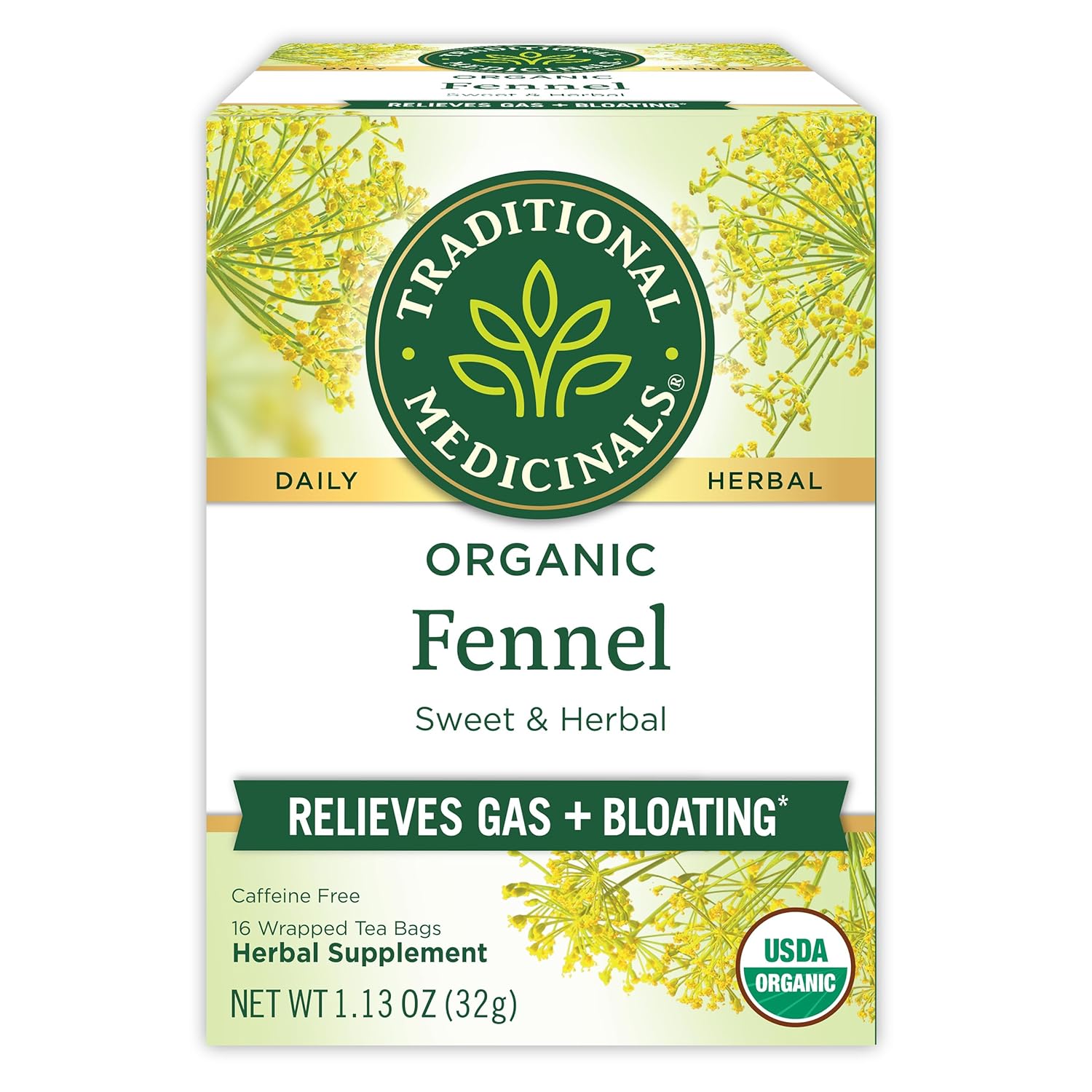
5. Dandelion Tea
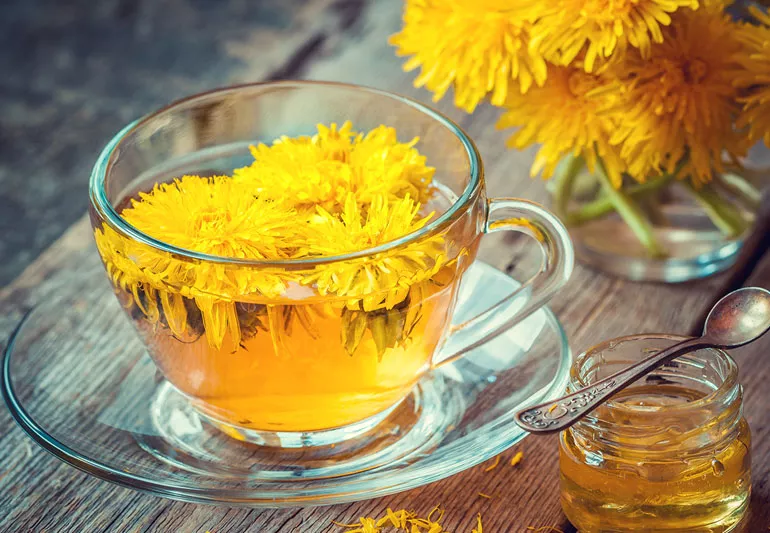
Why It Works:
- Dandelion is a mild diuretic, meaning it can help your body get rid of excess water weight, which can sometimes appear as bloating.
- It also supports liver function and bile production, improving the digestion of fats and oils.
Flavor Profile and Variations:
- Dandelion tea has an earthy, slightly bitter taste. Some people prefer mixing it with other herbs or adding a sweetener like honey.
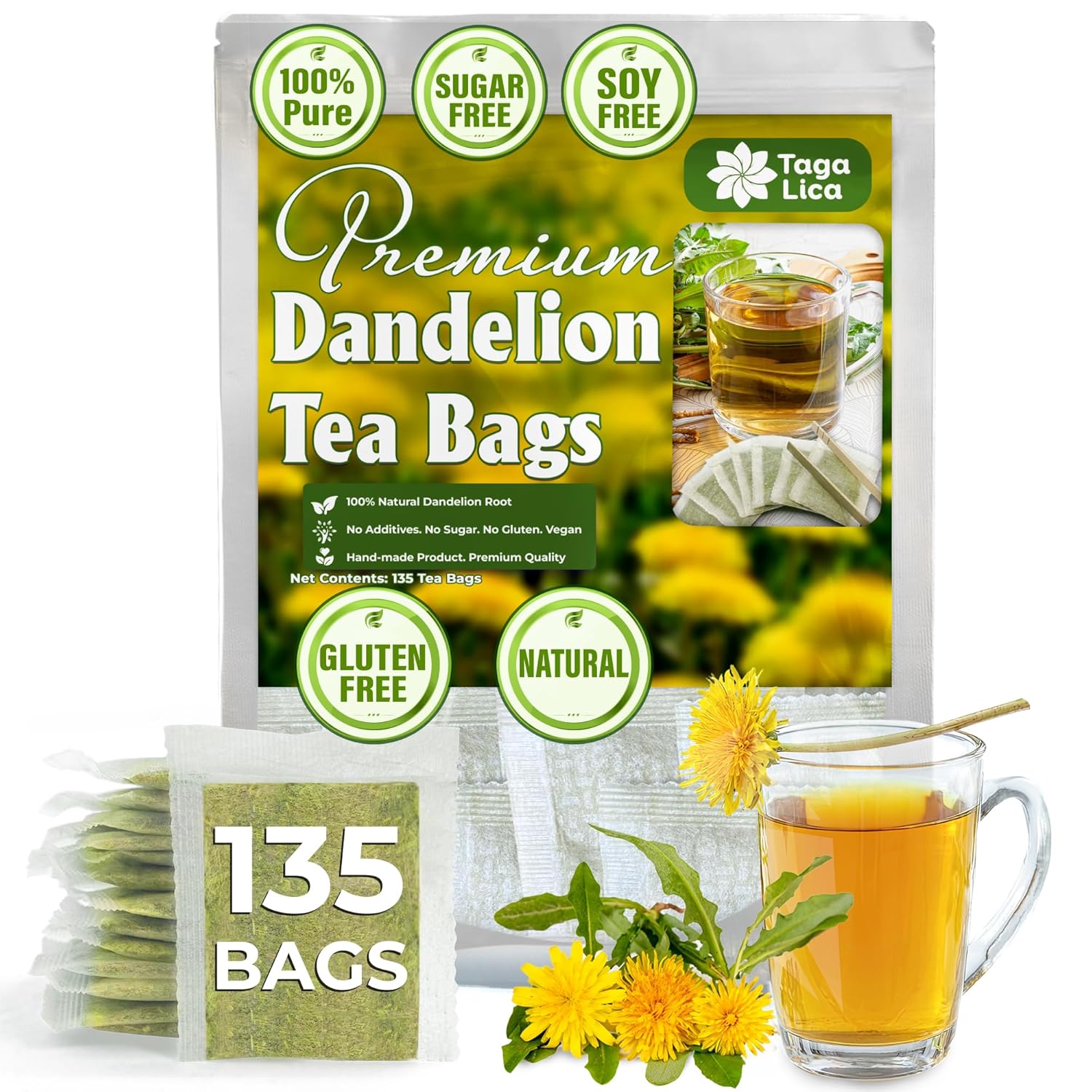
6. Lemon Balm Tea
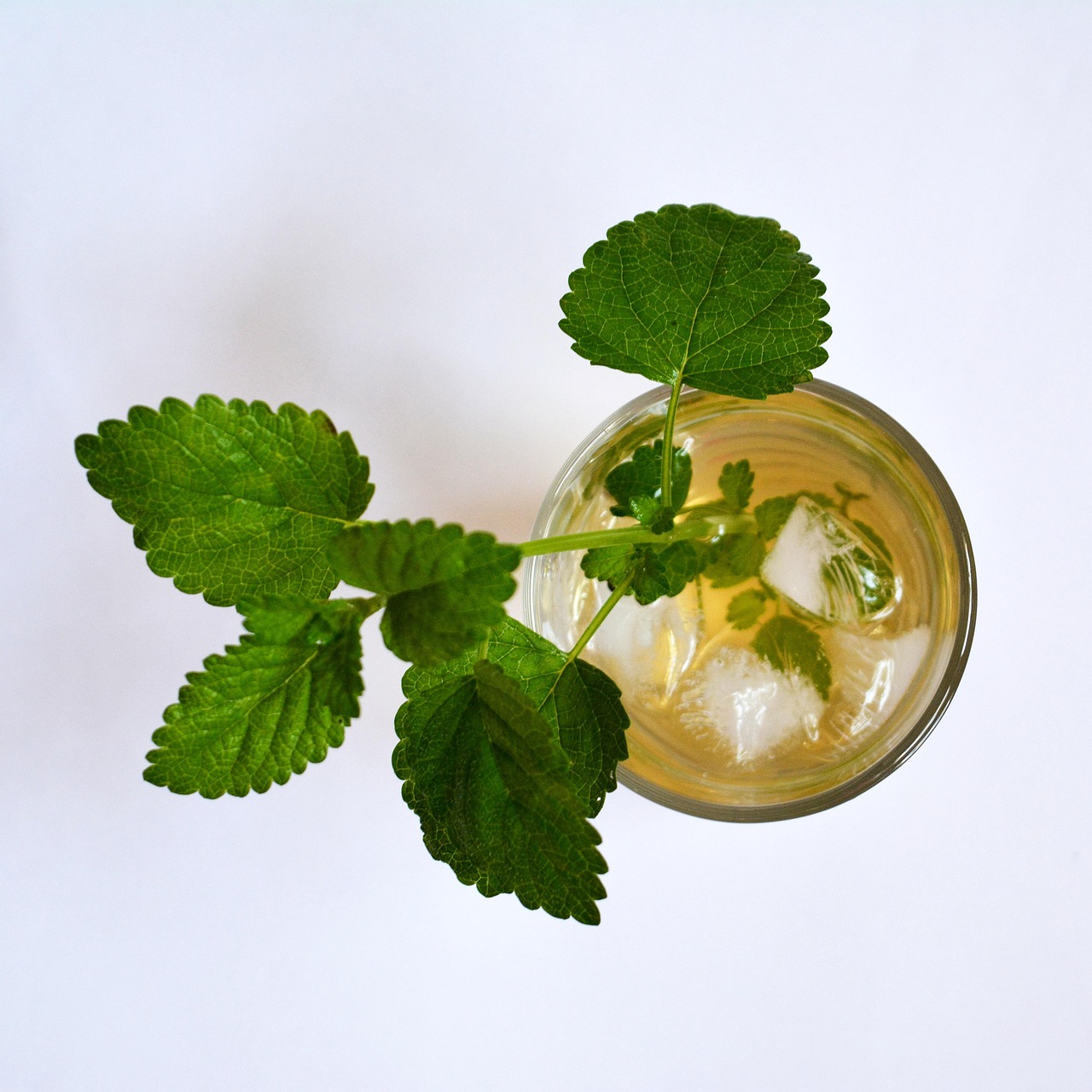
Why It Works:
- Lemon balm (Melissa officinalis) is traditionally used to soothe upset stomachs and relieve mild indigestion.
- Its natural oils can reduce cramping and encourage healthy gastric secretions.
Stress Reduction:
- Like chamomile, lemon balm has mild sedative properties, which can alleviate stress-induced digestive upset.
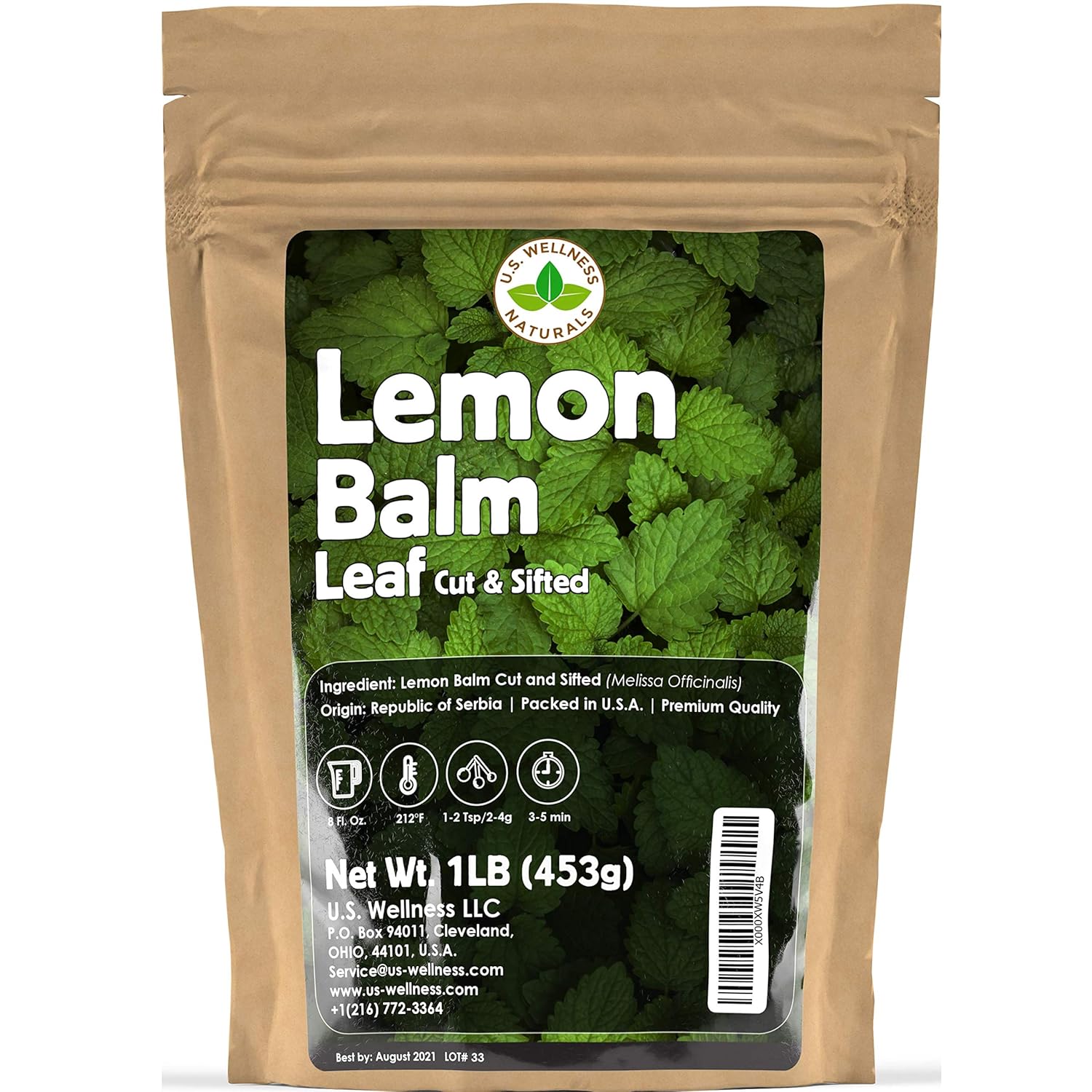
7. Cinnamon Tea

Why It Works:
- Cinnamon has anti-inflammatory properties and may improve digestion by increasing the body’s ability to break down carbohydrates.
- It can also warm the stomach, aiding in the digestion process and reducing gas formation.
Caution:
- In large amounts, cinnamon (particularly cassia cinnamon) contains coumarin, which can affect liver function. Moderate intake is generally safe.
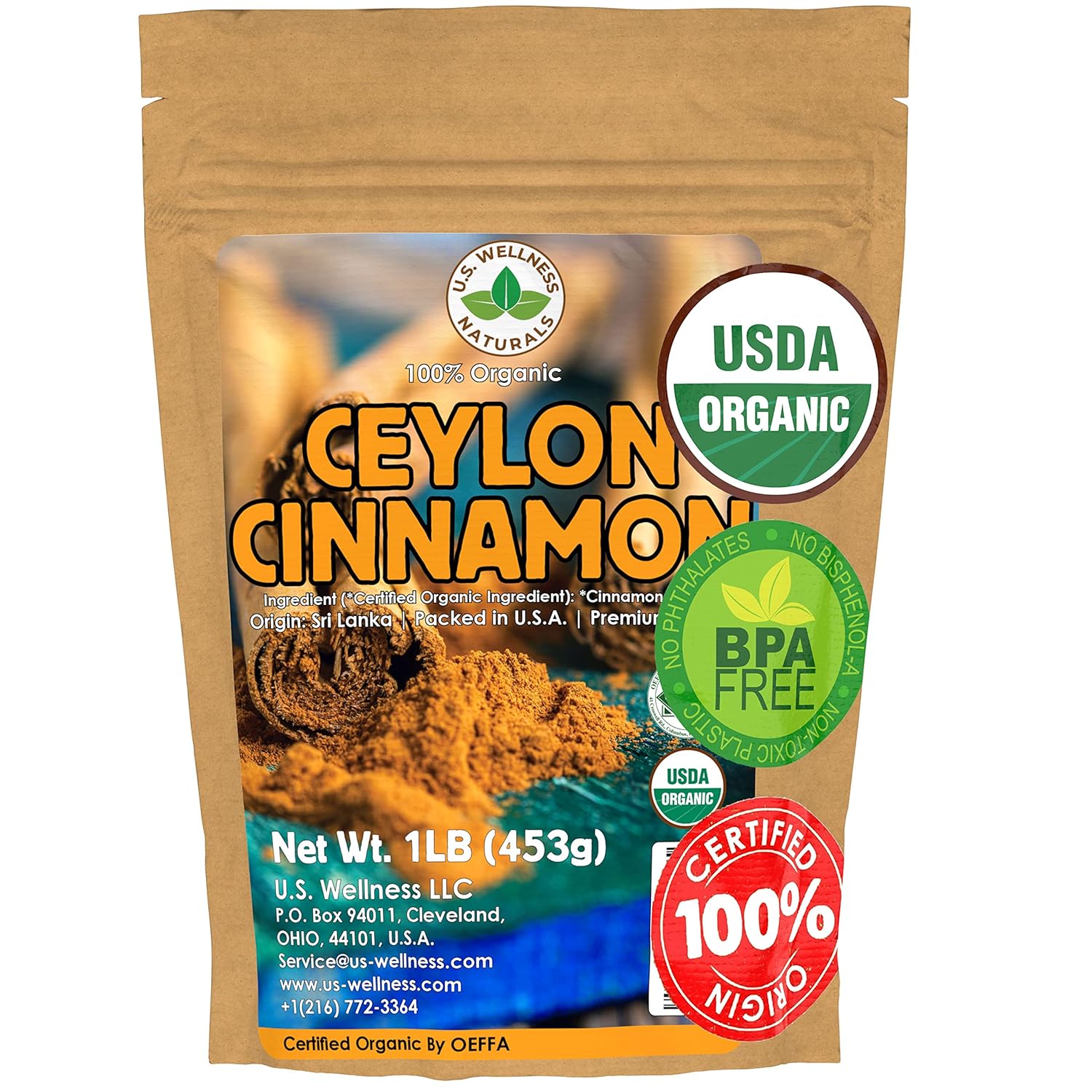
8. Other Helpful Herbal Blends
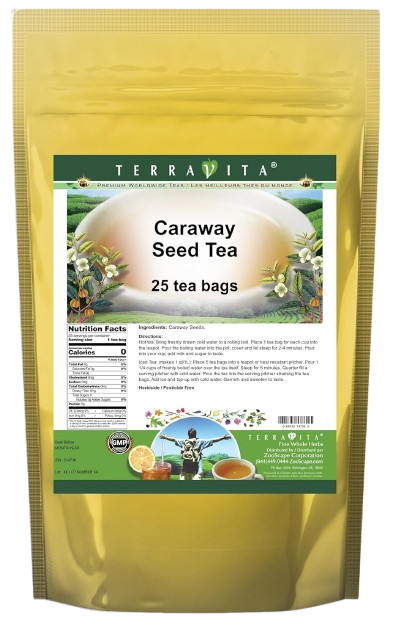
Caraway Tea: Caraway seeds help expel gas and reduce intestinal spasms.
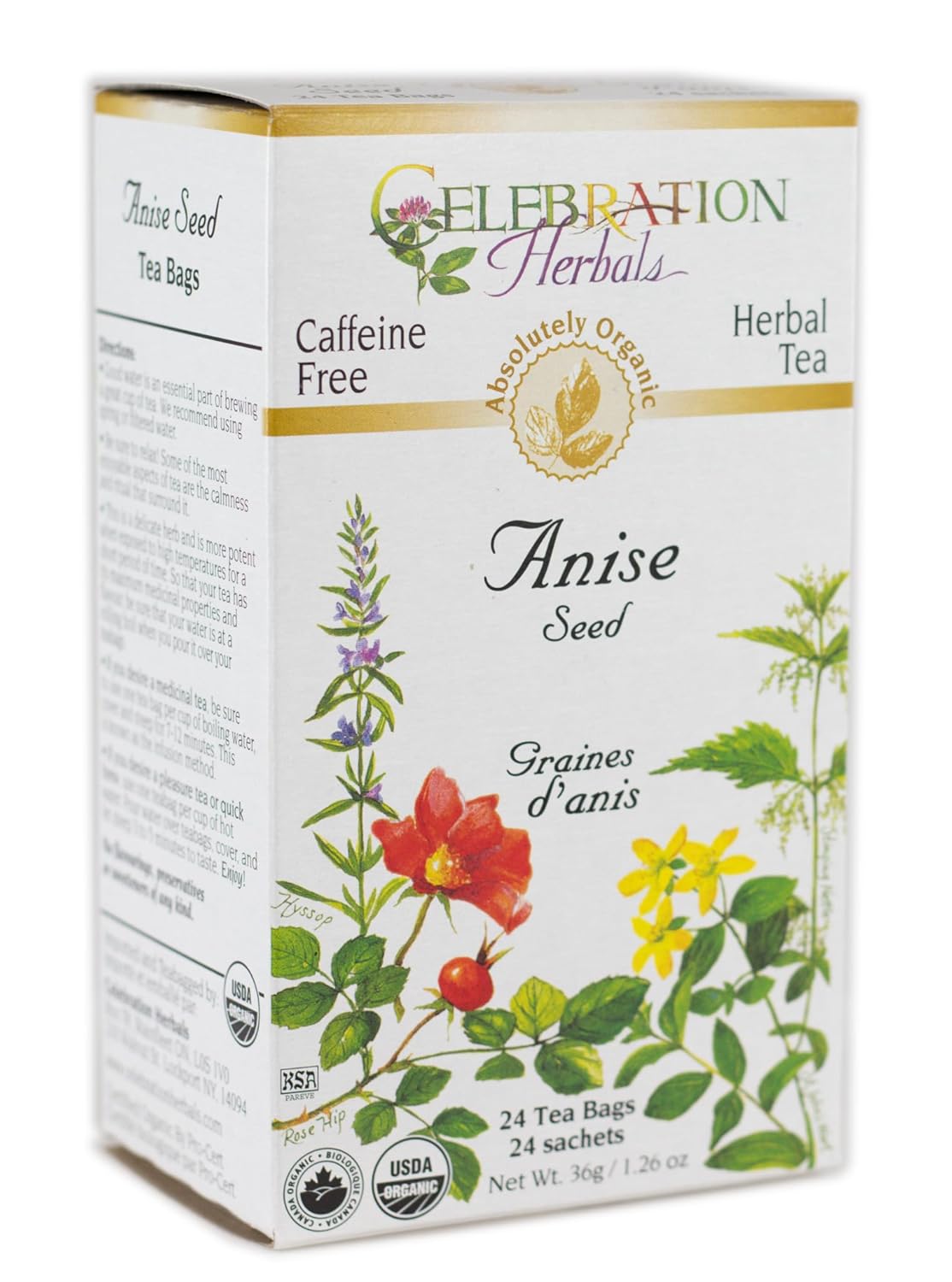
Anise Tea: Anise seeds are carminative, preventing fermentation in the stomach.
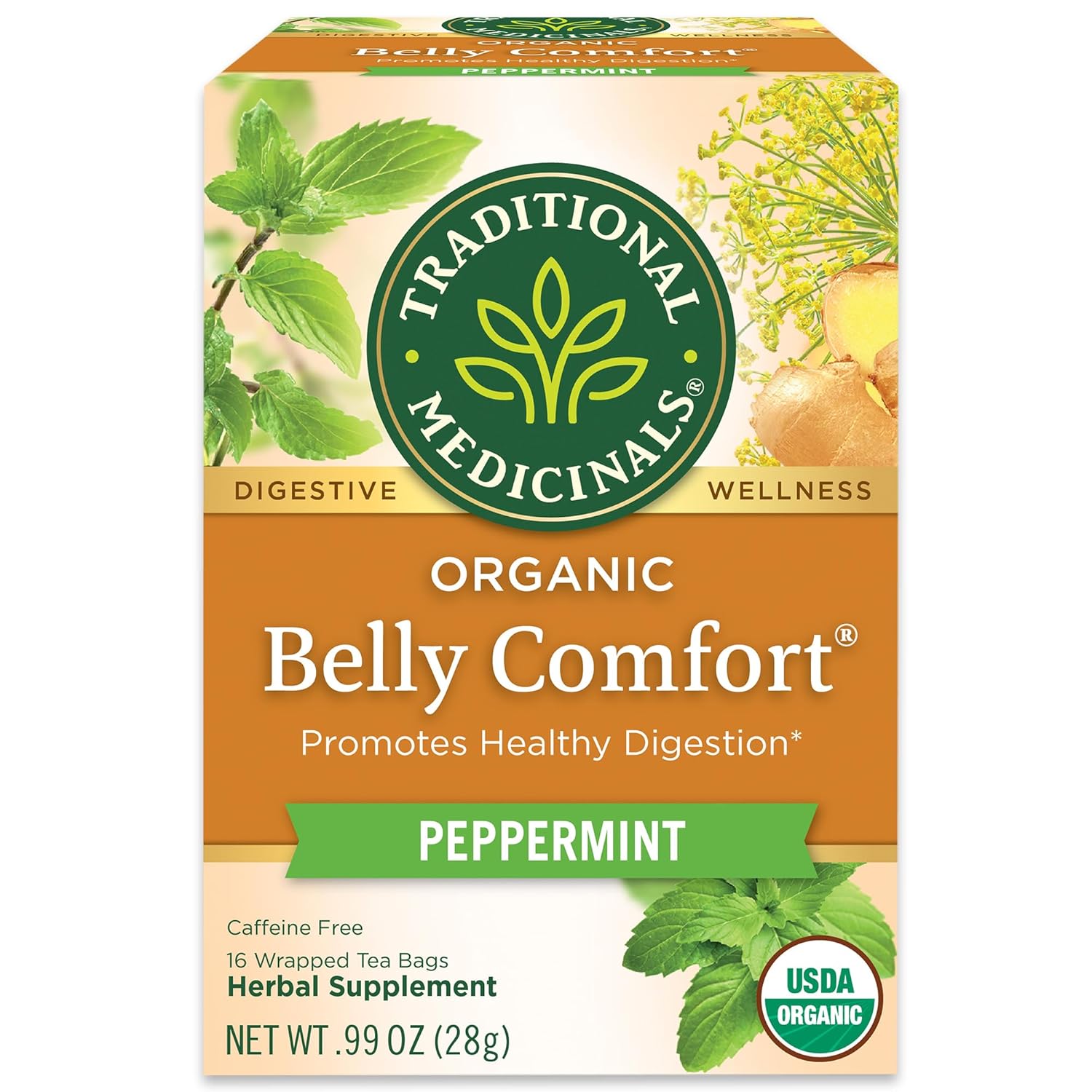
Combination Teas: Many commercial “detox” or “digestive” teas combine peppermint, fennel, ginger, and other herbs to create a potent digestion-friendly blend.
Proper Preparation Methods for Herbal Teas

Brewing herbal teas correctly is crucial to extract their beneficial compounds effectively. Here’s a step-by-step guide you can follow:
- Choose Quality Herbs:
- Opt for organic, high-quality dried herbs or fresh herbs whenever possible.
- Use Fresh, Filtered Water:
- Impurities in tap water can alter the flavor and reduce the efficacy of your tea.
- Water Temperature:
- Generally, herbal teas need boiling or near-boiling water for proper steeping.
- Certain delicate herbs (like chamomile) might benefit from slightly cooled water (around 90–95°C or 194–203°F) to preserve volatile oils.
- Steep Time:
- Peppermint, Chamomile, Lemon Balm, and Ginger: 5–10 minutes.
- Fennel, Cinnamon, Dandelion Root: 10–15 minutes.
- Longer steeping times usually provide a stronger flavor and more potent benefits, but be mindful of potential bitterness.
- Cover the Cup:
- While steeping, cover the cup with a small saucer or lid to prevent the evaporation of essential oils.
- Strain and Enjoy:
- If using fresh herbs or loose-leaf teas, use a fine-mesh strainer.
- You can sweeten your tea with honey or stevia if desired, but avoid heavy sweeteners, which can sometimes trigger bloating themselves.
- Drink Warm:
- Sipping warm tea helps relax the digestive tract and can be more soothing than iced tea.
Lifestyle Modifications to Support a Bloat-Free Life
While dietary adjustments and herbal teas can make a huge difference, holistic management of bloating and gas also involves certain lifestyle changes.
1. Regular Physical Activity

Why It Helps:
- Physical activities like walking, jogging, or yoga stimulate intestinal contractions, promoting the movement of gas and preventing constipation.
- Exercise also reduces stress, which positively impacts gut health.
Recommended Routines:
- Post-meal walks: A 10-15 minute stroll after meals can speed up digestion.
- Yoga poses: Poses like “Wind-Relieving Pose” (Pavanamuktasana) or “Cat-Camel Pose” (Marjaryasana-Bitilasana) can help release trapped gas.
2. Stress Management and the Gut-Brain Axis

Stress and Digestion:
- The gut-brain axis means your digestive health can worsen under chronic stress, as stress hormones can slow or alter bowel motility.
- High-stress levels can lead to poor eating habits (e.g., stress-eating) and less mindful food choices, exacerbating bloating.
Stress-Reduction Techniques:
- Meditation or Deep Breathing Exercises: Just 5-10 minutes of mindful breathing can relax your body and reduce gastrointestinal tension.
- Progressive Muscle Relaxation: Systematically tensing and relaxing muscle groups can calm the nervous system.
- Engaging Hobbies: Activities such as painting, reading, or gardening can lower stress, indirectly helping your gut.
3. Sleep Hygiene

Importance of Quality Sleep for Digestion:
- During sleep, your body performs essential repair and regulatory processes, including resetting digestive functions.
- Poor sleep disrupts hormonal balances and can impair digestion, leading to next-day bloating.
Sleep Hygiene Tips:
- Consistent Sleep Schedule: Go to bed and wake up at the same time daily to regulate your circadian rhythm.
- Limit Screen Time Before Bed: Blue light from screens can interfere with melatonin production.
- Avoid Heavy Meals Late at Night: Eating right before bed can lead to indigestion and bloating in the morning.
4. Posture and Abdominal Massage

Why It Helps:
- Good posture ensures that your abdominal organs have adequate space for optimal function. Slouching can compress your intestines, hindering smooth gas passage.
- Gentle abdominal massage can stimulate peristalsis (the movement of the intestines), helping trapped gas move along.
How to Perform Abdominal Massage:
- Circular Motion: Start near the right hip, move upward, across, and then downward in a gentle, clockwise motion following the path of the large intestine.
- Light Pressure: Pressing too hard can cause discomfort or pain.
5. Scheduling Meals and Snacks
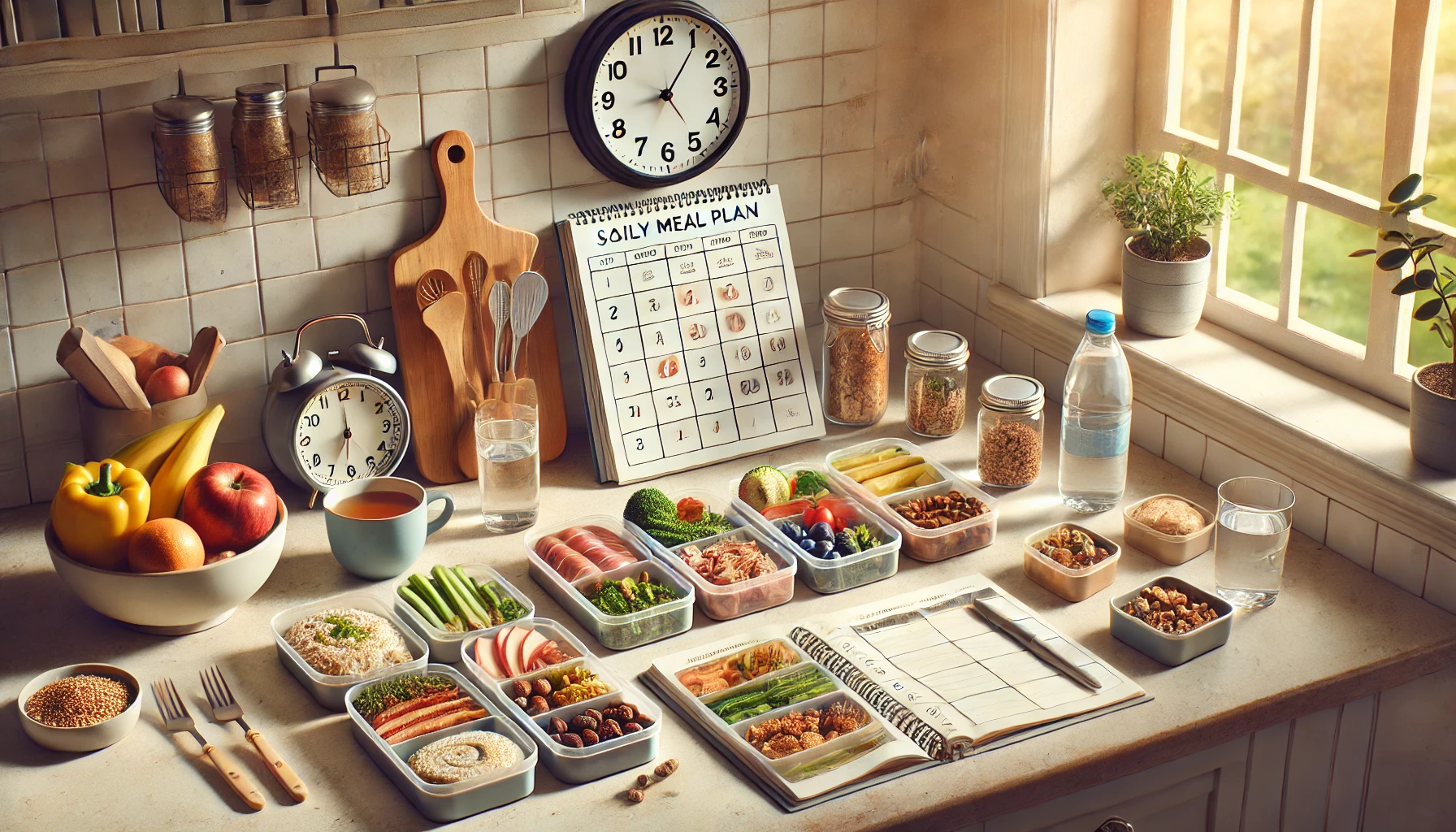
Why It Helps:
- Spacing out meals prevents continuous snacking that keeps your digestive system perpetually busy, possibly leading to more gas production.
- Allows your gut to go through the Migrating Motor Complex (MMC)—a “housekeeping” wave that clears out undigested remnants between meals.
Practical Tips:
- Structured Meal Times: Have fixed times for breakfast, lunch, and dinner with minimal snacking in between.
- Balanced Macros: Include protein, healthy fats, and complex carbs in your meals for steady digestion.
Potential Risks, Precautions, and When to Seek Professional Help
While bloating and gas can typically be managed at home with dietary changes and herbal teas, there are times when professional medical advice is crucial:
- Chronic Bloating or Severe Pain:
- If bloating persists for several weeks or is accompanied by severe abdominal pain, consult a healthcare provider to rule out underlying conditions like IBS, Crohn’s disease, or ovarian cysts.
- Blood in Stool or Unexplained Weight Loss:
- These could be signs of more serious gastrointestinal disorders and warrant immediate attention.
- Allergic Reactions to Herbs:
- If you develop a rash, itching, or difficulty breathing after consuming an herbal tea, stop immediately and seek medical help.
- Medication Interactions:
- Some herbs can interact with medications (e.g., dandelion for diuretic users, ginger for blood thinners). Always discuss with your pharmacist or doctor.
- Pregnancy and Breastfeeding:
- Pregnant or nursing mothers should exercise caution with certain herbs and consult a healthcare professional before incorporating them into their routine.
Practical Examples and Real-Life Scenarios
- Office Worker with Afternoon Bloating
- Situation: You regularly experience bloating post-lunch, making it uncomfortable to sit at your desk.
- Solution:
- Opt for a smaller, fiber-balanced lunch (e.g., grilled chicken with vegetables and a small portion of brown rice).
- Sip on peppermint or fennel tea around 30 minutes after your meal.
- Go for a short 10-minute walk.
- Busy Parent Dealing with Stress and Gas
- Situation: Juggling work and home responsibilities leads to rushed meals and high stress. Result: frequent belching and gas.
- Solution:
- Practice mindful eating. Chew thoroughly, eat meals in a calmer environment if possible.
- Keep ginger tea handy to soothe quick bouts of gas and bloating.
- Incorporate brief meditation or breathing exercises to manage stress.
- Fitness Enthusiast Experiencing Post-Workout Bloating
- Situation: Consuming protein shakes too quickly or with certain additives can cause bloating.
- Solution:
- Choose a high-quality protein with fewer additives and artificial sweeteners (particularly sugar alcohols).
- Introduce fermented foods like kefir or yogurt for probiotics.
- If bloating persists, try a low-FODMAP protein powder.
- Individual with Suspected Food Intolerance
- Situation: Frequent bloating whenever dairy is consumed.
- Solution:
- Eliminate or reduce dairy for 1-2 weeks. Monitor symptoms.
- Switch to lactose-free or plant-based dairy substitutes (e.g., almond, coconut, or soy milk).
- Consult with a dietitian to confirm lactose intolerance.
These real-life examples showcase how simple, targeted strategies can drastically improve everyday comfort and help you manage the triggers contributing to bloating and gas.
Frequently Asked Questions (FAQ)
- Can drinking too much water cause bloating?
- While staying hydrated is crucial, guzzling excessive water right before, during, or after meals may dilute digestive enzymes, slightly slowing digestion. Moderation is key—small sips during meals are generally fine.
- Is carbonated water safer than soda for bloating?
- Carbonated water can still introduce air bubbles into your GI tract, potentially leading to bloating. However, it is typically free from sugars and artificial ingredients found in soda, so it is less likely to cause additional digestive distress. If you’re sensitive, opt for still water.
- How often can I drink herbal teas for bloating relief?
- Typically, 2-3 cups of herbal tea per day is safe for most healthy adults. However, certain herbs can interact with medications or pose risks in large amounts. If you have health concerns or are on medication, consult a professional.
- Do herbal teas lose their potency if stored too long?
- Yes. Over time, dried herbs can lose their essential oils and potency, leading to weaker effects. Aim to use dried herbs within 6-12 months and store them in a cool, dark, airtight container.
- Should I avoid all dairy to prevent bloating?
- Not necessarily. If you suspect lactose intolerance or dairy sensitivity, limiting dairy may help. However, some people can handle moderate amounts or certain products like low-lactose cheeses (e.g., aged cheddar) or lactose-free milk.
- Are there specific exercises that help release gas quickly?
- Yes. Simple yoga poses like “Wind-Relieving Pose” (Pavanamuktasana) or “Child’s Pose” can help move trapped gas through the intestines.
- Can probiotics alone cure chronic bloating?
- While probiotics can be incredibly helpful for balancing gut flora, chronic bloating may have multiple causes—diet, stress, or medical conditions. A holistic approach generally yields better long-term results.
- How do I know if my bloating is abnormal and needs medical attention?
- Watch for red flags like severe or persistent pain, blood in your stool, unexplained weight loss, or a sudden change in bathroom habits. In these cases, seek professional advice promptly.
Conclusion
Bloating and gas are common digestive woes that can disrupt your daily life. Fortunately, you have a wide range of strategies to combat them—from mindful eating and portion control to carefully selecting herbal teas that soothe and relax your digestive tract. Key lifestyle changes such as regular exercise, stress management, and adequate sleep can further reinforce these dietary adjustments, giving you comprehensive control over your digestive well-being.
Key Takeaways:
- Identify triggers: Keep a food diary to uncover patterns in your diet that may be contributing to bloating and gas.
- Embrace herbal teas: Peppermint, ginger, chamomile, and fennel, among others, can provide quick relief and have minimal side effects.
- Adopt a holistic routine: Combine mindful eating habits, balanced nutrition (including probiotics), and consistent exercise for the most effective results.
- Seek professional help if needed: Persistent or severe bloating can signal deeper issues that require medical intervention.
By implementing these guidelines, you can significantly reduce or even eliminate the discomfort of bloating and gas, regaining control over your health, confidence, and daily comfort. While occasional bouts of bloating are normal, the knowledge you’ve gained here will equip you to manage your digestive system proactively and holistically—giving you the freedom to enjoy meals and social situations without fear of an uncomfortable aftermath.

